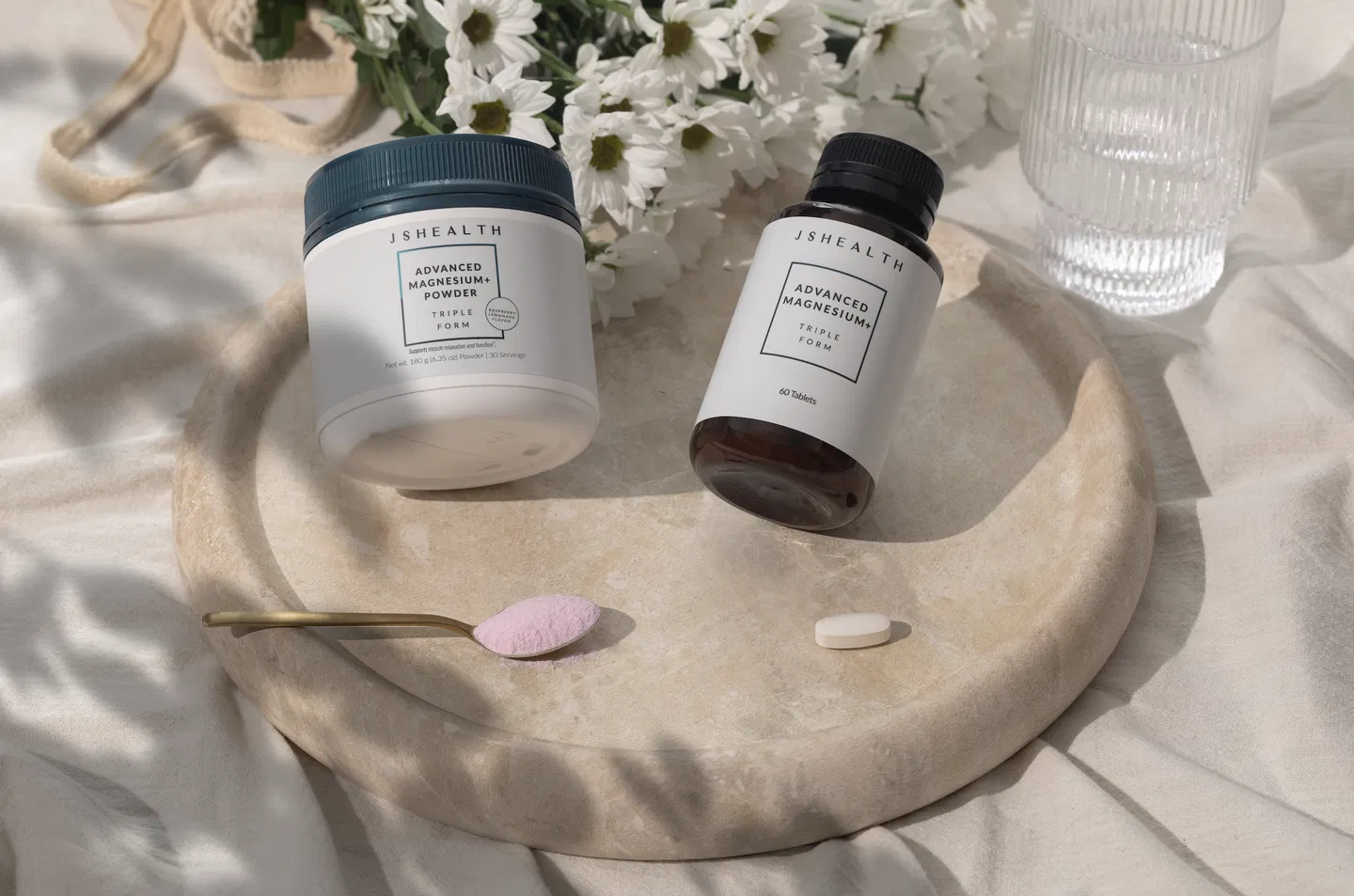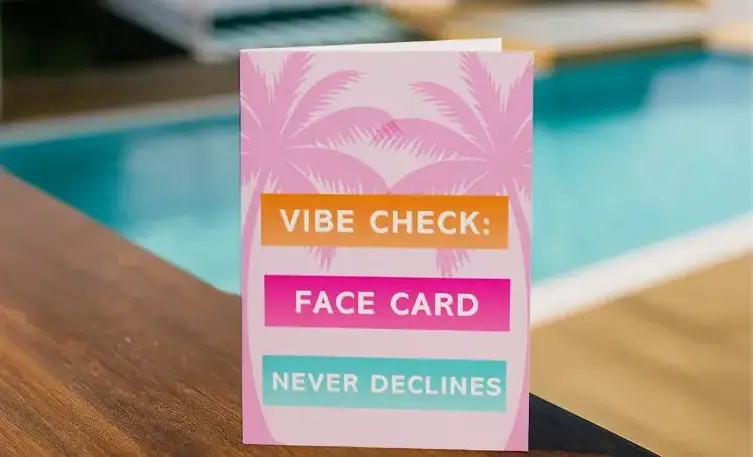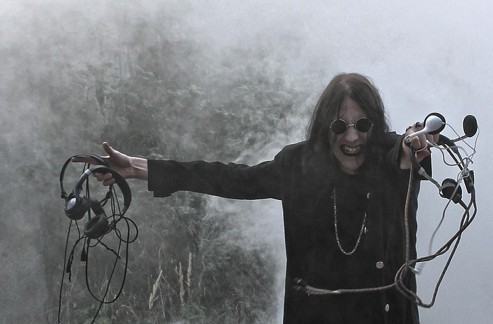
So quirky ... so unique ... so, honestly, overdone
via Leandra's substack
For a time, Leandra Medine Cohen was the patron saint of quirky white girls, and Man Repeller was their bible.
But to reduce it to only that would be misleading.
The blog started as “a site about trends that women love and men hate,” and as the site got bigger and Leandra grew more self aware (or claimed to), she updated the mission statement to one of more universal empowerment.
In her manifesto about the change, Leandra wrote: “Your opinion is as good as mine, and you can’t put our opinions in boxes. That would diminish their diversity, the complexity with which they present themselves. We are our opinions, and we don’t fit in boxes.”
But for all this talk of diversity, Man Repeller had very little of it.
By the time the site went dead in 2020, Man Repeller had grown from Leandra’s personal blog to a media company, verifiable brand, social media platform, and hallmark of all things avant garde in fashion — and all of this stemming from Leandra’s imagination and, honestly, from her ego.
But, as Leandra would even tell you herself, Man Repeller quickly spiraled from a place for her own musings and outfits to an empire she found herself ruling with little grace and all bravado.
In fact, she does say all this and more, lamenting the fall of the company she never wanted, during her now-viral appearance on the podcast The Cutting Room Floor.
In the most recent episode, host and designer Recho Omondi talks to Leandra about a lot of things, but primarily about Leandra’s feelings about herself.
The episode is titled “The Tanning of America” after the book and documentary by Steve Stoute, The Tanning of America: How Hip-Hop Created a Culture That Rewrote the Rules of the New Economy. In it, Stoute explores the politics and economics of “the tan generation.” This generation is defined less by common experience, and refuses to be defined only by the ethnic/cultural lines of previous generations.
In the decade since the book was released in 2011, the so-called tanning has become almost literal. Cultural appropriation has run rampant, beauty standards have evolved into “Instagram Face” with the Kardashians at the helm, and rap music has become even more ubiquitous in mainstream radio than when Stoute wrote about it.
And Man Repeller, which was founded by Medine in 2010, found itself holding on to vestiges of the old world by a gossamer thread which eventually, finally, snapped.
The great downfall of the Man Repeller happened after the murder of George Floyd, when many brands tried to step up to the plate with generic messages of solidarity and were quickly called out for being performative. Man Repeller was a casualty of this trend, when suddenly the “empowerment” mission which was at the core of their brand seemed fickle at best, hypocritical at worst.
Leandra began Man Repeller as a personal blog and grew the company in the early-2010s era of the corporate girl boss. Nasty Gal, the brand by author of the book literally titled #Girlboss, Sophia Amoruso, was the hallmark of female entrepreneurship; Emily Weiss had just started the blog Into the Gloss, which would grow into a media company and then into Glossier; and female bloggers were everywhere — turning their niche passions into careers in an unprecedented way which would only grow during the social media era.
It was a great time to be a girlboss … if you were white.
Leandra and her peers asserted their quirkiness and founded brands which championed their femininity as a badge of honor in the male-dominated space of entrepreneurship — without actually challenging the structures of that space.
In fact, they reveled in most of the other privileges of those structures. These predominantly white (or white-passing) women saw themselves as outsiders because they were women, but did not have the self-awareness to look any further at the actual outside, where everyone else was.
And yet these proto-feminist-Girls-girls built their empires by defining themselves within this “other,” taking space as a form of activism without also giving some of that space to people who didn’t have some of the privileges they had. In most cases, they weren’t aware of their own privileges at all.
Man Repeller fell into this trap — a company founded on the principle of dressing without the male gaze which still centered men in its name? Embarrassing in 2020, to say the least — and it could not rise to the occasion when the curtain was pulled back.
Despite their attempts to rebrand, what was rotten was deeper in the brand’s core: Leandra.
When you peeled back the layer of purported female empowerment, Man Repeller was a cult of personality around Leandra Medine Cohen herself.
The oversharing blog style was carried through to the site as it expanded, meaning fans of the company were automatically fans of Leandra, and the writers who worked there and garnered followings of their own.
In The Cutting Room Floor episode, Recho’s genius is letting Leandra reveal the truth of her ignorance, and therefore the brand’s failure, on her own. In a display of practiced patience most Black women will recognize (it’s a survival method, letting white women tell you who they are themselves), Recho does not interrupt as Leandra makes the episode her therapy session.
Instead, she interjects in the post-production, bringing the voices of Black women who worked at or with Man Repeller and even her editor, who was fed up as he edited the tapes, to contrast Leandra’s nonsense with some critical thinking.
The interview is full of one shocking statement after another, leaving its listeners asking: Does this woman even hear herself?
The music editing in this episode perfection. I am dead. Everytime Leandra goes on tangent . And the music starts playing. Please . It feels like I am listening to a documentary.pic.twitter.com/aZO4DXRBMm— ud83dudc95ud83dudc95lolsud83dudc95ud83dudc95 (@ud83dudc95ud83dudc95lolsud83dudc95ud83dudc95) 1625674829
She talked about how much she learned from her reading this summer, but revealed the limitations of that knowledge as she tone-policed the criticism she got, refused to take responsibility for any sort of racial bias on the job (“I’m an equal opportunity asshole,” she claimed), and waxed poetic about how she only just realized that she did not have a difficult childhood — despite growing up on the Upper East Side and having a house in the Hamptons as a kid.
Leandra’s complete lack of self-awareness makes itself plain, but to attribute this trait only to Leandra would be buying into her self-victimizing individuality complex. The stale, sad truth is this: There are so many Leandras — privileged white women who cling onto their “quirkiness” and womanhood as denotations of their uniqueness and difference (read: their only personality traits), who gatekeep actual marginalized people from the spaces they are still privileged enough to occupy.
The Cutting Room Floor exposed the difference between actually experiencing oppression and marginalization and the perception that you have. Leandra has yet to grasp the concept. And that dissonance was at the core of her empire of “empowerment,” a platform which really just masqueraded itself as a celebration of the “other” while pandering for approval from the mainstream.
So it’s not just about Leandra. Or Man Repeller. It’s the culture that sees “other” as quirky (when it’s on a white girl), but rejects any deviation that goes too far from the hegemony. And the companies that claim to embrace the “other” are usually embracing that hegemonic ideal, too — not reaching out to embrace the marginalized and oppressed at all.
Though some rushed to Leandra’s defense, claiming that her feeling like a failure even at the height of her success was a valid example of a woman with imposter syndrome, they too failed to see the point. Leandra’s feelings might be valid, but her egregious inability to look beyond them to see that she was not the center of attention became alarmingly clear.
In all her lamentations, Leandra talked about injustices and tragedies — but always her own. Her lack of context and empathy was, frankly, alarming. And while some have criticized the episode for its unflinching, harsh criticism of the guest, Leandra has gone unchecked too long, and the voices of actual marginalized people deserve to be heard.
Leandra is back on the Upper East Side now, where she grew up, after years living in SoHo. She tells Recho at the beginning of the podcast that it was so difficult for her to adjust — that after all this, she spent so much time in her own head that she hasn’t been able to acclimate to the world around her.
This early part of the episode gives the whole rest of the podcast away: Leandra is too self-absorbed to connect with anything beyond her own experience. But the mirage that she called individuality and wore like a crown to build her career is falling away. And there’s nothing interesting or unique behind it.
You probably know a woman like this, who ordered all the anti-racism books from the Black bookstores, maybe even read them, but still feels like Black people on the internet are too mean, cancel culture is the real scourge of the digital age, and that all the protests of the summer weren’t about a literal murder, but rather to make people like her feel bad.
And this woman is walking around the Upper East Side in her pearls — let her be. Her era has thankfully passed.
Listen to the episode here:
S3 EP10: The Tanning of America feat. Leandra Medine














